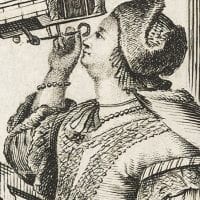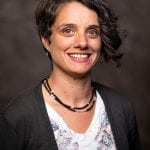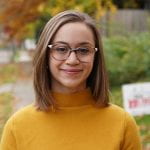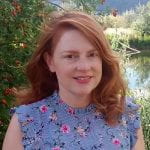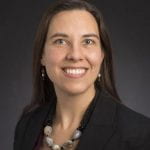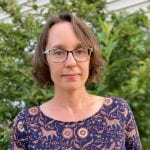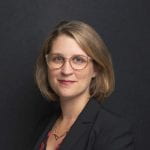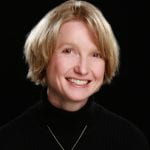Scientific inquiries, achievements, and debates shape and are shaped by human culture. The examination of science and technology in their cultural and social contexts is vital to understanding both our society today, in which science and technology play such large roles, as well as scientific practice. This exploration situates the humanities and the sciences as interrelated enterprises in ways that can inform both.
A symposium, “History of Women in Science,” will be held on Monday, November 13 from 8:30 a.m. to 5 p.m. in the Knight Library Browsing Room. The symposium will explore the often forgotten stories of women in science from the 16th century to the present. This history can shape how budding and practicing scientists imagine themselves, the arc of their careers, their fields, and even their subjects of research and the way in which it is pursued. Through the history of science, we can re-imagine how science can connect to social justice.
The symposium has been organized by Vera Keller, professor and department head of History at the University of Oregon. According to Keller, “The history of science is not a well developed field at UO. As a result, we have a divergence on our campus between the humanities and the sciences which the history of science could bridge, showcasing to scientists how perspectives from the humanities can and should shape current practices of research and innovation. . . I am hoping that this event can be transformative for our campus by introducing the discipline to many who may not be familiar with it.”
During the symposium, a wide slate of scholars will address issues surrounding the history of women in science from the 16th century to the present. Events will include participation from scientists and student advocacy groups for diversity in STEM. By putting scientists and historians in dialogue, the organizers aim to illustrate the continuing importance of historical perspectives, as well as collections and archives, to current practices of science.
Alisha Rankin, History, Tufts University, studies early modern European history, the history of science and medicine, the history of pharmacy, and women’s history. Her talk title is “Chemistry for Ladies? Women and Distillation in Early Modern Europe.”
Michele Pflug, a PhD candidate in History at the UO, was a 2023 Mellon/ACLS Dissertation Innovation Fellow and a 2022–23 OHC Graduate Research Support Fellow. Her talk title is “Object of Empire: Materiality, Gender, and Insect Collecting in the Early-Eighteenth Century.”
Margaret Carlyle, History, University of British Columbia, Okanagan, is a historian of medicine, science, and technology with specialization in early modern France in both European and global contexts. Her talk title is “Phantoms in the Classroom: Obstetrical Training in Enlightenment France.”
Elizabeth Hoiem, School of Information Sciences, University of Illinois, Urbana-Champaign, explores the history of technological innovations in children’s literature—from early children’s books and toys to contemporary applications of digital pedagogy—and looks at modern technology through a historical lens. Her talk title is “The Forge and the Fireside: Gendered Spaces in Victorian STEM Books.”
Elizabeth Yale, History of Science and Medicine, University of Iowa, is a historian of science and the book in Britain and Europe. Her talk title is “Neither Invisible, nor Hidden, nor Forgotten: Changing How We Remember Women in the History of Science.”
Jenna Tonn, Professor of the Practice, Human-Centered Engineering, Department of Engineering, Boston College, teaches courses on the history of science, technology, and engineering. Her research focuses on the social and cultural history of technical knowledge, with a specific interest in women and gender in STEM fields. Her talk title is “How to Create a Life in Science: Class, Social Status, and Sexuality Among Women in Zoology.”
Keynote speaker Lisa Weasel is a professor and department chair in Women’s, Gender, and Sexuality Studies at Portland State University. Her research investigates intersections of gender, race, class, and sexuality in cell biology, molecular genetics, and immunology. Her talk title is “Gender in the History and Future of Science: Seeing the Forest for the Trees.”
Mid-day, students from UO’s Women in Graduate Science and Alliance for Diversity in Science and Engieneering will offer commentary and identify themes from the morning session. And a tour of related materials in Knight Library’s Special Collections will be offered, though space will be limited.
The symposium will conclude with a roundtable discussion “Connecting Science with Social Justice,” which will be chaired by Alex Cohen, Science and Risk Communication, UO School of Journalism and Communication. A reception will follow.
The symposium, cosponsored by the OHC’s Endowment for Public Outreach in the Arts, Sciences, and Humanities, is free and open to the public. For the full schedule, go to: blogs.uoregon.edu/hwssymposium. For more information contact Vera Keller, vkeller@uoregon.edu
